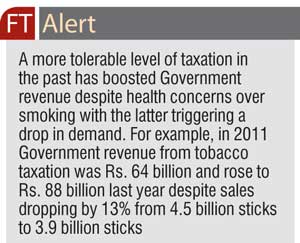Pan Asia Bank recently entered into an agreement with the Symbiotics Group, a Geneva based fund specialising in providing credit facilities for SME development worldwide, to raise over US$ 17 million through a senior debt arrangement.
Under the agreement with Symbiotics, the funds will be made available in two components, one in US$ and the other one in Lankan Rupees.
Symbiotics is a leading global investment company dedicated to inclusive and sustainable finance in emerging and frontier markets. This fund which has invested over $2.8 bn across over 60 countries is mainly engaged in Asset Management, Investment Advisory, Investment Analysis, Capacity Building and Technical Assistance Research.
Each investment made by Symbiotics is filtered through a social responsibility rating, alongside traditional financial evaluations, adopting a multi stakeholder approach (ESG norms), balancing the multiple interests at stake along the value chain in order to maximize their long term sustainability and value creation.
Hence securing this loan is a clear indication of how Pan Asia Bank’s multi faceted growth was recognized by the loan provider in qualifying the bank in terms of each of the above criteria.
Further, granting of this credit facility is also a strong indicator of the confidence and trust the reputed global investment fund players place in Pan Asia Bank and its growth momentum, especially given the attractive rate at which this loan has been offered.
Securing of this credit facility comes at a time when Pan Asia Bank is in the process of enhancing its capital base through an already announced rights issue which is expected to further bolster the bank’s balance sheet.
TSW Capital Services (TCSPL) based in India provided the advisory services to the Pan Asia Bank and Sybiotics Group to complete the funding arrangements.
Under the agreement with Symbiotics, the funds will be made available in two components, one in US$ and the other one in Lankan Rupees.
Symbiotics is a leading global investment company dedicated to inclusive and sustainable finance in emerging and frontier markets. This fund which has invested over $2.8 bn across over 60 countries is mainly engaged in Asset Management, Investment Advisory, Investment Analysis, Capacity Building and Technical Assistance Research.
Each investment made by Symbiotics is filtered through a social responsibility rating, alongside traditional financial evaluations, adopting a multi stakeholder approach (ESG norms), balancing the multiple interests at stake along the value chain in order to maximize their long term sustainability and value creation.
Hence securing this loan is a clear indication of how Pan Asia Bank’s multi faceted growth was recognized by the loan provider in qualifying the bank in terms of each of the above criteria.
Further, granting of this credit facility is also a strong indicator of the confidence and trust the reputed global investment fund players place in Pan Asia Bank and its growth momentum, especially given the attractive rate at which this loan has been offered.
Securing of this credit facility comes at a time when Pan Asia Bank is in the process of enhancing its capital base through an already announced rights issue which is expected to further bolster the bank’s balance sheet.
TSW Capital Services (TCSPL) based in India provided the advisory services to the Pan Asia Bank and Sybiotics Group to complete the funding arrangements.
www.dailynews.lk
